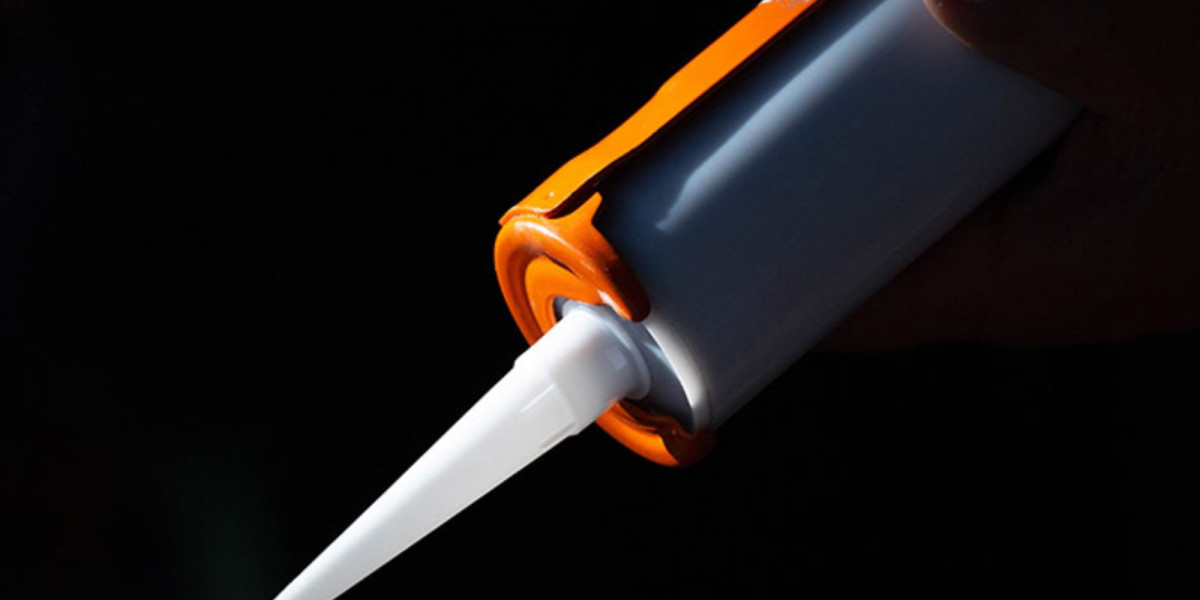Introduction
The global demand for high-performance materials in various industries has led to the rapid growth of polymer-based products. One such material, Silyl Modified Polymer (SMP), has gained significant attention due to its versatility, superior properties, and wide range of applications. SMP is a type of hybrid polymer that combines the best features of silicone and polyurethane, making it a valuable product in sectors such as construction, automotive, and coatings. The unique characteristics of SMP, such as excellent adhesion, UV resistance, and water repellency, have propelled its use in numerous industries. This Silyl Modified Polymer (SMP) Manufacturing Plant Project Report provides a comprehensive overview of setting up a Silyl Modified Polymer (SMP) Manufacturing Plant. The report covers essential aspects such as market analysis, raw materials, production processes, required machinery, regulatory requirements, and financial planning for a successful manufacturing operation.
Market Overview
The market for Silyl Modified Polymers is growing at a significant pace, driven by the increasing demand for advanced materials in construction, automotive, and industrial applications. SMPs offer enhanced properties like superior weatherability, bonding strength, and durability compared to traditional materials, making them ideal for various applications. The global rise in infrastructure development, automotive manufacturing, and the expansion of the construction industry are the primary drivers for this market.
Key Market Drivers:
Demand for High-Performance Adhesives and Sealants:
SMP is primarily used in high-performance adhesives and sealants, particularly in the construction and automotive industries. The growing demand for strong, durable, and flexible adhesives is driving the growth of SMP-based products.Advancements in Construction Industry:
SMP-based materials are being increasingly used in the construction industry for applications like weatherproofing, waterproofing, and sealing. With rapid urbanization and infrastructure development, the demand for SMP-based products is expected to continue growing.Automotive Industry Expansion:
The automotive industry is one of the largest consumers of SMPs. These polymers are used in bonding and sealing applications in vehicles, including windshield bonding, seam sealing, and noise reduction. The global automotive industry's expansion and increasing focus on lightweight materials are boosting the demand for SMP.Eco-Friendly Products and Regulations:
Environmental concerns and stringent regulations regarding volatile organic compounds (VOCs) have driven manufacturers to develop low-VOC, sustainable alternatives. SMPs are considered an eco-friendly option, further promoting their use.Growth in Industrial Applications:
SMPs are increasingly being used in industrial applications for coating and sealing purposes, thanks to their durability, chemical resistance, and ease of application.
Get a Free Sample Report with Table of Contents@
Raw Materials Required for Silyl Modified Polymer Manufacturing
The production of Silyl Modified Polymers involves a combination of various raw materials that are blended to produce the final polymer. These materials include:
Silane Compounds:
The core component of SMPs is silane, a compound containing silicon and oxygen. Silanes are key to the bonding properties of SMPs, ensuring that they adhere well to surfaces such as metals, glass, and plastics.Polyurethane Resins:
Polyurethane resins are commonly used as a base material in SMP formulations. They provide the flexibility, strength, and resilience needed for the final product.Curing Agents:
Curing agents, such as isocyanates, are added to facilitate the curing process, ensuring the polymer hardens and achieves its desired properties.Solvents:
Solvents are used in the manufacturing process to dissolve and dilute the raw materials, facilitating the production of a uniform mixture.Fillers and Additives:
Various fillers and additives are used to modify the properties of the final polymer, such as improving UV resistance, enhancing durability, or reducing viscosity.Stabilizers and Catalysts:
Stabilizers are added to prevent the polymer from degrading due to environmental exposure, while catalysts accelerate the curing process.Pigments and Colorants:
If color or aesthetics are required, pigments and colorants are added to the polymer formulation.
Manufacturing Process
The manufacturing process for Silyl Modified Polymers involves several key steps that are designed to ensure high-quality production. Below is an overview of the process:
1. Preparation of Raw Materials:
The first step involves the preparation and measurement of the raw materials, including silane compounds, polyurethane resins, curing agents, solvents, and other additives. Each raw material must be carefully weighed to achieve the desired final formulation.
2. Polymerization Reaction:
The main manufacturing step involves the polymerization of silane compounds with polyurethane resins. This reaction is typically carried out in a controlled reactor vessel under specific temperature and pressure conditions. The goal is to create a hybrid polymer that exhibits the desired properties of both silicone and polyurethane.
3. Mixing and Blending:
Once polymerization is complete, the mixture is blended with other ingredients, including curing agents, stabilizers, and additives. This step ensures that the ingredients are thoroughly incorporated, creating a uniform and homogeneous product.
4. Degassing:
To remove any trapped air or solvent vapors, the mixture is subjected to a degassing process. This helps improve the quality and consistency of the polymer.
5. Curing and Crosslinking:
The polymer mixture is then cured under controlled conditions. Curing agents are activated to crosslink the polymer chains, enhancing the material's mechanical properties, such as strength, elasticity, and resistance to environmental factors.
6. Final Product Testing and Quality Control:
Before packaging, the final product is subjected to rigorous quality control testing to ensure it meets the desired specifications. Tests include checking the polymer’s viscosity, adhesion properties, UV resistance, and curing time.
7. Packaging and Storage:
After passing quality control, the SMP is packaged into appropriate containers for distribution. Packaging may include bulk containers or smaller packaging units, depending on customer requirements. Proper storage conditions are essential to maintain the quality of the product.
Required Machinery and Equipment
Setting up a manufacturing plant for Silyl Modified Polymers requires several specialized pieces of equipment. Below are the key machines and tools needed:
Reaction Vessels/Polymerization Reactors:
These are large vessels used to carry out the polymerization reaction between silanes and polyurethane resins. The reactors must be capable of withstanding high temperatures and pressures.Mixers and Blenders:
High-speed mixers and blenders are used to ensure the uniform mixing of raw materials, additives, and curing agents.Curing Ovens:
Curing ovens provide the controlled temperature environment necessary for crosslinking the polymer chains and achieving the desired physical properties.Degassing Equipment:
Degassing equipment is used to remove any air bubbles or solvent vapors from the polymer mixture to improve its consistency and quality.Quality Control Testing Equipment:
Instruments such as viscometers, adhesion testers, and UV aging chambers are used to evaluate the polymer’s properties and performance.Filling and Packaging Machines:
These machines are used to fill the final product into containers and package them for shipment.Storage Tanks:
Tanks are used to store the raw materials and the final SMP product before it is packaged or shipped.
Regulatory Compliance and Safety Standards
The manufacturing of Silyl Modified Polymers must comply with various industry regulations and safety standards. Some of the key compliance factors include:
Environmental Regulations:
Due to the chemical nature of the raw materials, manufacturers must ensure they follow environmental regulations related to waste disposal, VOC emissions, and pollution control.Health and Safety Standards:
Manufacturing plants must adhere to occupational health and safety standards to protect workers from potential hazards, such as exposure to chemicals and solvents.ISO Certification:
Manufacturers may seek ISO certifications such as ISO 9001 (Quality Management System) to ensure consistent product quality and meet international standards.REACH Compliance (European Union):
If manufacturing SMPs for the European market, the plant must ensure that all raw materials comply with REACH (Registration, Evaluation, Authorization, and Restriction of Chemicals) regulations.
Financial Considerations
Starting a manufacturing plant for Silyl Modified Polymers requires substantial capital investment. The financial aspects include:
Initial Capital Investment:
This includes expenses for machinery, plant infrastructure, raw materials, and facility setup. Capital investment will depend on the scale of the plant.Operational Costs:
Ongoing costs include raw material procurement, energy consumption, labor, quality control, maintenance, and transportation.Revenue Generation:
Revenue is generated by selling the final SMP product to industries such as construction, automotive, and coatings. Selling both in bulk and in retail packages can further expand revenue streams.Profitability and Return on Investment:
The profitability of the plant depends on production efficiency, quality control, and strong demand for SMP products. An efficient production process and strategic marketing are crucial to maximizing profit.
Media Contact
Company Name: Claight Corporation
Contact Person: Lewis Fernandas, Corporate Sales Specialist — U.S.A.
Email: sales@expertmarketresearch.com
Toll Free Number: +1–415–325–5166 | +44–702–402–5790
Address: 30 North Gould Street, Sheridan, WY 82801, USA
Website: www.expertmarketresearch.com
Aus Site: https://www.expertmarketresearch.com.au








